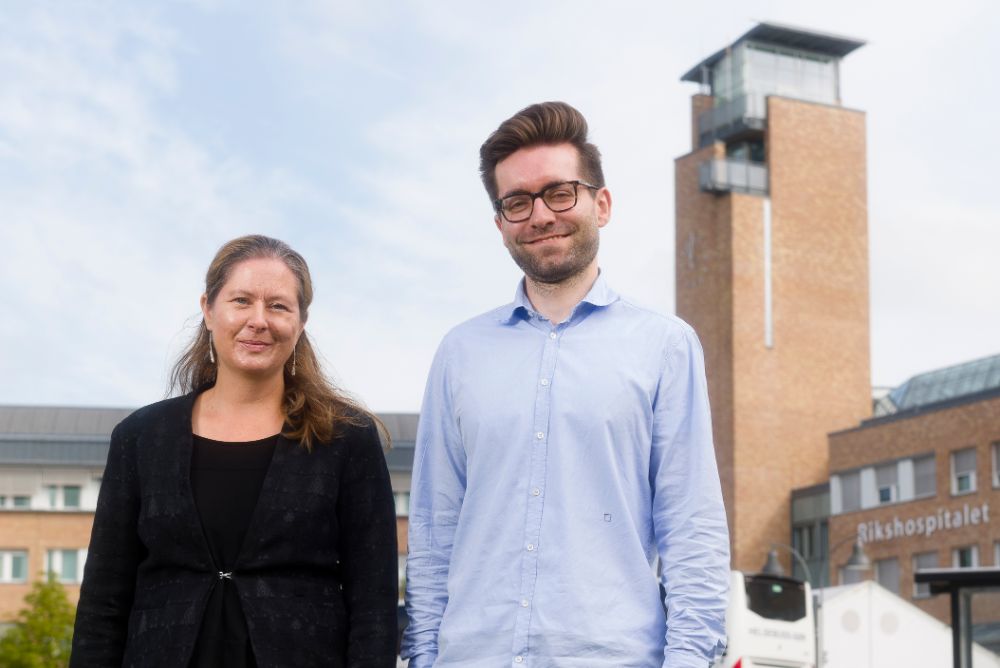The new EU project “A cloud-based systems-immunology platform for reliable predictions of vaccine efficacy”, VAXPRED, will be coordinated by UiO and is initiated on 1 September.
Gunnveig Grødeland will lead the project alongside Deputy Victor Greiff. They are both researchers at the Department of Immunology at the Institute of Clinical Medicine.
– Our main objective is to develop models that can predict the production of antibodies after vaccination against various viruses. The models can help us to produce vaccines that are even more effective, Grødeland says.
The VAXPRED project will contribute to increased knowledge about how vaccines work at the individual level.
Good protection in each individual will become even more important in the future
Until today, vaccine development has mainly been about achieving protection at the population level. Achieving herd immunity has so far been the goal when fighting threatening infectious diseases.
– But we see that there is now a growing vaccine scepticism several places in the world, which is by and large not based on professional knowledge. As a result, it is no longer possible to obtain herd immunity everywhere in the world, says the project manager, and continues:
– In such a situation, it becomes even more important that the vaccines work effectively in each vaccinated person.
Nevertheless, no vaccine provides full protection in all persons.
– But the models that we will develop in VAXPRED can be used to try to design vaccines that have a better effect in each individual, the researcher says.
It may be more difficult to make vaccines for novel viruses than for the coronavirus

– During the SARS-CoV-2 pandemic, we have seen that good and effective vaccines have been developed very quickly, says Grødeland, and adds:
– But it is not a given that it will be as easy with the next virus that we need vaccines against.
The new models will provide knowledge that will enable vaccine developers to predict exactly which parts of a virus our immune system will recognize.
– This knowledge will be important for making vaccines against viruses that we are not familiar with. It will also enable us to identify early on in the vaccine development process which vaccines are actually most likely to be effective, Grødeland says.
Will create models using machine learning, genetics and immunological data
The researchers will create models using machine learning, genetics and immunological data from all across Europe. The researchers will look at common denominators in different groups' immune systems.
– We will therefore look at how genetics, and whether people have been exposed to similar viruses in the past, will affect how the immune system responds to a novel virus, Grødeland explains.
The models will be shared via a cloud-based platform online.
– We hope to end up with a tool where you can enter data about a specific vaccine, and get information about how this will be able to generate immune responses in different individuals, the project leader says.
The Faculty of Medicine congratulates on the new research grant

Pro-Dean for Research Jens Petter Berg congratulates Gunnveig Grødeland and her staff on the research grant, on behalf of the Faculty of Medicine.
– For more than a year, Grødeland has distinguished herself as a highly valued and profiled communicator of virus and vaccine information. It is magnificent and very impressive that she has had the capacity to gather an international team of researchers, and has written such a strong application that it has won the competition in the EU's announcements of research and innovation funds at the same time, Berg comments, and continues:
– The pandemic has given us new methods for vaccine development and vaccination. I am sure that VAXPRED will take this further so that we get even more effective and better-adapted vaccines. I wish Grødeland and her research team good luck with the project!
VAXPRED is part of the Inno4vac consortium
The EU grant brings together partners from Denmark, Germany, Portugal and the Netherlands into the project. GSK and Sanofi are included as industrial partners.
VAXPRED is part of an even larger IMI-EU consortium called Inno4vac. Three other themes in Inno4vac are (1) the development of novel and improved infection models in humans; (2) development of novel and better cell-based models for vaccine efficacy assessment; and (3) streamlining vaccine production.
– This larger collaboration in Inno4vac gives our VAXPRED team access to data and knowledge that will be very relevant for the development of the models, at the same time as we will be able to contribute to more efficient study designs for the other groups, Grødeland concludes.
